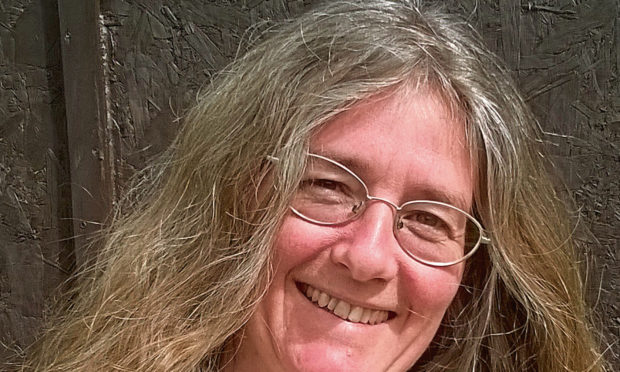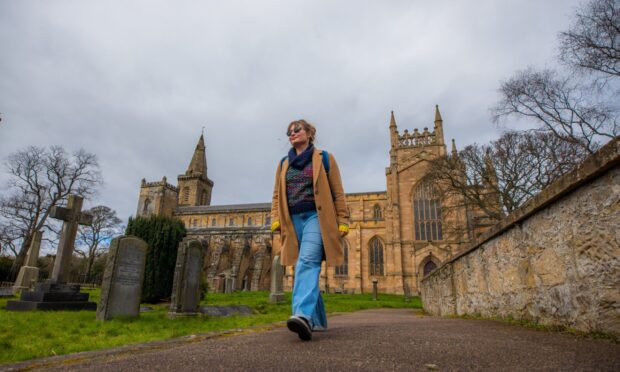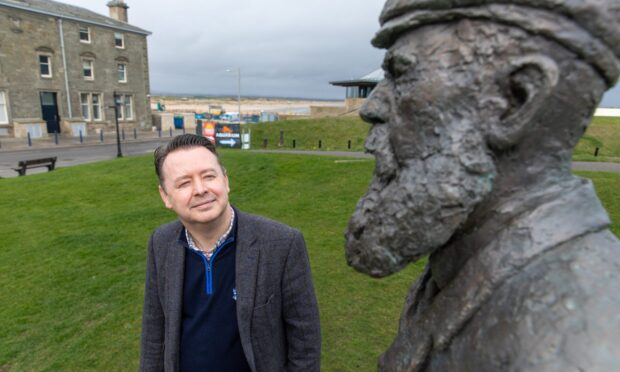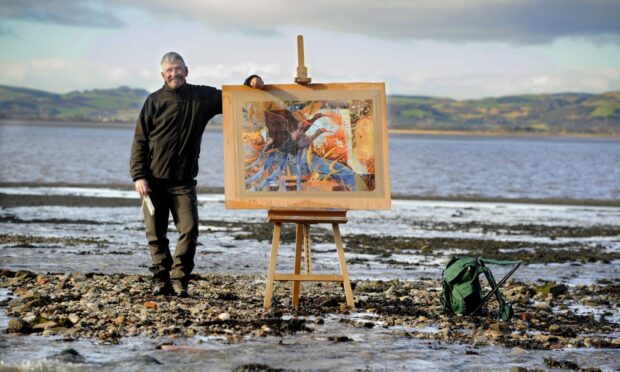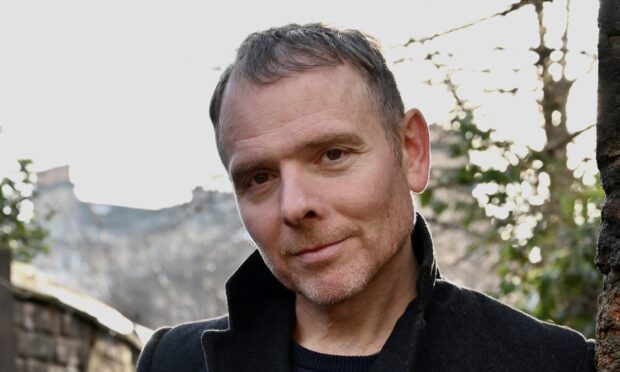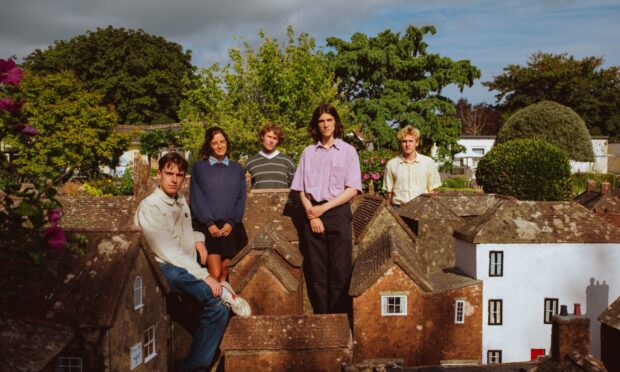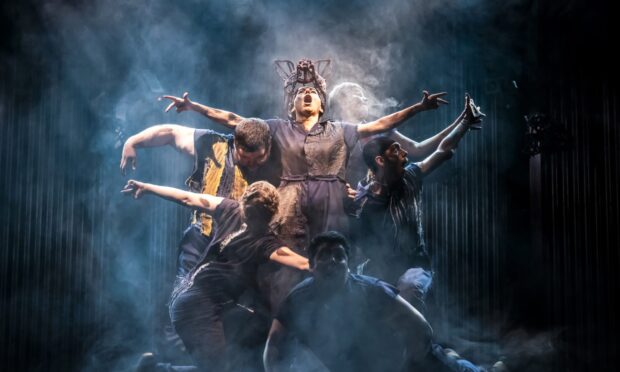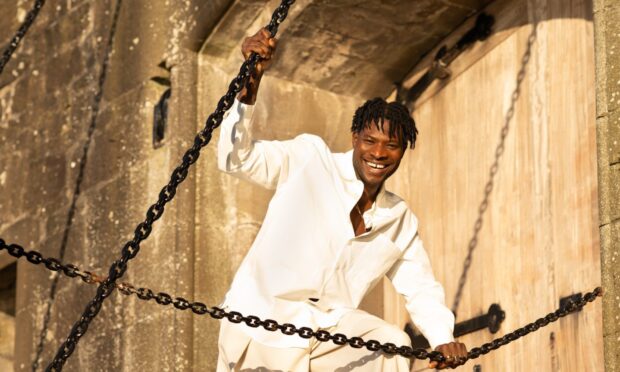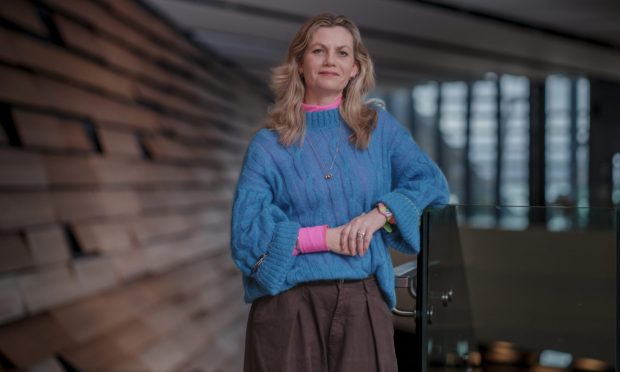A writer needs to “live” their stories to bring them alive for us. Mandy Haggith, whose Stone Series trilogy is set in the Iron Age, is so close to that long-ago life she can reach out and touch it.
Poet, author and astute environmental activist, Mandy has lived in Assynt since 1999, not far from Clachtoll Broch, an archaeological project close to her heart and a large part of her life, and the inspiration for this series. Here she sees remnants of the Iron Age emerge layer by layer, and sails the seas on her 28-foot Twister sailing boat called Earch-mara, the Gaelic term for the walrus, seeing a similar coastline to the explorers and traders of which she writes.
Writing her first draft in pencil on paper, she wrote the Stone Series triology over five years as a single project. The first book, The Walrus Mutterer, concludes its serialisation in The Courier on Monday.
The Amber Seeker was published earlier this year.
Mandy is also a lecturer in literature and creative writing at the University of the Highlands and Islands, and campaigns for the preservation of our forests. Her advice to writers is to establish a routine, write the same amount every day, and “give yourself permission to write complete rubbish”.
Home for Mandy is a croft in these north east Highlands “the most beautiful corner of Scotland”, where the coastal forest creeps down to the ocean and “we have all the Scottish eco-systems in one place, it seems.” Mandy and her husband live in “various wooden structures”, one for sleeping, one for working, one for cooking. “We have solar panels and a little generator for music, lights, computer, and we do have hot water for the bath,” she points out.
It’s living simply and close to the land, just as her Iron Age characters do.
The Amber Seeker is told from the perspective of Pytheas, a real-life Greek explorer and trader who sailed around the British Isles in 320 BC. He is both hero and villain, his flaws embodying the contradictions and imperfections that make us human. “I got intrigued as to what Pytheas would have found,” she says. “I’m interested in the ways different cultures interact. He was from the Mediterranean, coming to very different Celtic cultures.”
And as for Pytheas’ greed and selfishness, Mandy points out that in the Iron Ages “you started to get individual burials, individual wealth, the first characteristics of our society now.”
Her knowledge of the period is expert. She makes sure of this.
“For me historical fiction is finding the edges of what we know and going beyond that, but using what we know. To write the book I took up sailing.
“I needed to know how to handle a boat and about the waters they sailed. I also followed up in museums all over, Denmark, the Arctic circle… I sat on beaches with walruses, and I had [the trilogy] read by archaeologists to make sure it is as bomb proof as possible.”
And, from there, she brought the world to life with the wonderfully lyrical, evocative prose one would expect from the poet she is also is. “All my novels are thought experiments, about how a situation could have arisen.”
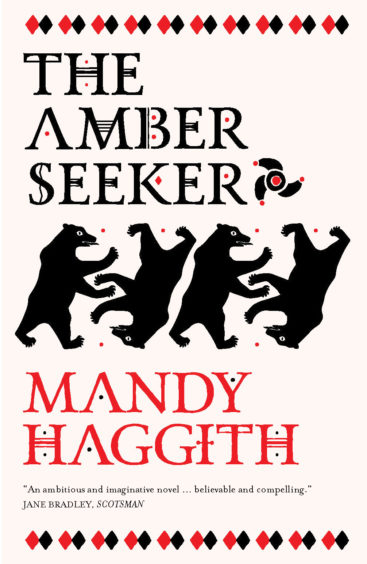 Mandy Haggith will be discussing The Amber Seeker at Waterstones, Kirkcaldy, on July 11 at 7pm. The Amber Seeker is published by Saraband, £8.99 (print) £4.99 (e-book).
Mandy Haggith will be discussing The Amber Seeker at Waterstones, Kirkcaldy, on July 11 at 7pm. The Amber Seeker is published by Saraband, £8.99 (print) £4.99 (e-book).
